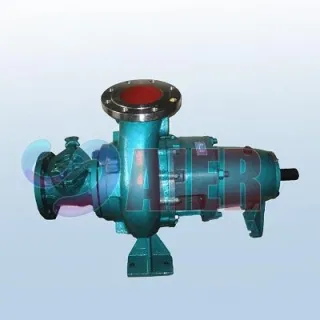Sep . 25, 2024 19:34 Back to list
slurry pump impeller material factory
Slurry Pump Impeller Material Importance and Selection
Slurry pumps play a crucial role in various industries, including mining, mineral processing, and wastewater management. One of the most critical components of a slurry pump is the impeller, which is responsible for generating the hydraulic energy required to transport slurries. The choice of material for the impeller is vital, as it affects performance, durability, and maintenance costs.
Impellers are subjected to harsh operating conditions, including abrasive particles and corrosive fluids. Thus, selecting the right material is essential to ensure longevity and efficient operation. Common materials used in slurry pump impellers include rubber, high chrome iron, stainless steel, and polyurethane.
Rubber impellers are favored for their excellent resistance to wear and flexibility. They are particularly effective in applications involving fine slurries with less abrasive content. However, rubber may not perform well in highly abrasive or extreme temperature environments.
High chrome iron impellers, on the other hand, offer exceptional hardness and wear resistance, making them ideal for handling abrasive slurries found in mining and mineral processing. These impellers can endure harsh conditions, although they can be more brittle compared to rubber options. This brittleness may lead to cracking under extreme shock loads.
slurry pump impeller material factory

Stainless steel impellers are known for their corrosion resistance and mechanical strength. They are suitable for applications involving corrosive liquids and provide good performance in a range of temperatures. However, they may not be the best choice for highly abrasive slurries, as their wear resistance is not as high as that of high chrome iron.
Polyurethane impellers combine the flexibility of rubber with the durability of metal. They are resilient and can handle abrasive materials while resisting chemical degradation. This makes polyurethane an excellent choice for various applications, although they may not be suitable for extremely high-temperature environments.
The selection of the impeller material should be based on specific application requirements, such as the types of slurries being pumped, the operating environment, and maintenance considerations. Companies must perform a thorough analysis to find the right balance between wear resistance, corrosion resistance, and cost-effectiveness.
In conclusion, the material chosen for slurry pump impellers significantly impacts their performance and lifespan. Understanding the properties of different materials allows manufacturers and operators to make informed decisions, ultimately enhancing operational efficiency and reducing downtime. Proper material selection is a key factor in maximizing the effectiveness of slurry pumps in various industrial applications.
-
High-Quality Sand Suction Dredge Pump Factories Durable & Efficient
NewsMay.22,2025
-
High-Quality Interchangeable Slurry Pump Spare Parts Supplier China
NewsMay.22,2025
-
China Gravel Dredge Pump - Heavy-Duty Slurry & Sand Dredging
NewsMay.22,2025
-
Durable Centrifugal Wastewater Pumps China Abrasives Pump Suppliers
NewsMay.21,2025
-
High-Quality Horizontal Centrifugal Slurry Pump China Factory & Supplier
NewsMay.21,2025
-
China Slurry Pump Rubber Parts - Durable & Custom Solutions
NewsMay.20,2025
